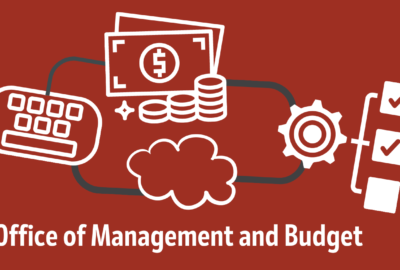How much of Biden’s regulatory agenda will survive under Trump?
Joe Biden's administration unleashed a small storm of regulations in the last months of his presidency, which could be evaporated by the Trump administration.
Voters decisively last rejected a Democratic successor to the Biden administration. That didn’t stop Biden’s team from unleashing a small storm of regulations in its last couple of months. Analyst Sarah Hay and senior policy analyst Zoey Xie, from the George Washington University Regulatory Studies Center, joined the Federal Drive with Tom Temin in studio to discuss the so-called Fall 2024 Unified Agenda and how much of it will evaporate under the Trump administration.
Interview transcript:
Tom Temin: And let’s begin with a review of what did get done in that last period. I guess they had a name for that agenda of regulation. What actually happened?
Zoey Xie: Yeah. So we kind of start with 2024 Fall Unified Agenda that was published in December. So the Unified Agenda is a semiannual publication containing information on regulatory and deregulatory actions that agencies are currently working on and recently completed. And it generally lists actions by stage of development, including actions that agencies are planning to issue within the next 12 months. And this agenda is particularly interesting because it is the last agenda of the Biden administration. So it provides useful information about midnight regulations. So that is the regulations that agencies were planning to issue before the Inauguration Day during the final months of the administration.
Tom Temin: Yeah, they like to lob some eggs at the incoming people and see what sticks.
Zoey Xie: And I mean, for a midnight period, the world generally defined them as the roughly three months between Election Day and Inauguration Day. And you will not be surprised that an outgoing administration generally rushes to finalize its policy priorities during those final months.
Tom Temin: Sure.
Zoey Xie: Before a new administration takes office.
Tom Temin: And what are some highlights of what they did get done in that midnight period, let’s say?
Zoey Xie: Yeah. So, I mean, the Unifed Agenda was kind of ambitious. We especially took a close look at the most high-impact actions scheduled for December 2024 and January 2025. Those are defined as economically significant actions, which are those estimated to have an annual impact of $200 million or more on the economy.
Tom Temin: That’s the threshold for a big regulation with OIRA review and so on?
Zoey Xie: Yes, that’s like the most, you could consider the most impact for regulations. So in the agenda, they were planning to issue 53 economically significant rulemaking actions within those last three months, including 18 proposed rules and 35 final rules. And I was just tracking like those 53 actions in the Federal Register yesterday. And it looks like so far as of yesterday’s issue, they have completed 25 actions, including nine proposed rules and 16 final rules. So this is roughly 50% of their targets set in the Unified Agenda.
Tom Temin: Now, the proposed rules can be undone immediately, correct?
Zoey Xie: Yes. I mean, technically, the new administration can withdraw proposed rules.
Tom Temin: And final rules. You have to have new rulemaking to undo that rule. Correct?
Sarah Hay: Final rules are a little bit trickier. Yes. So generally, a final rule can be undone through rulemaking. But we also, at the Regulatory Studies Center, take a look at the Congressional Review Act. And that’s a law that gives Congress the ability to quickly overturn federal regulations within a short period of time after the regulation has been issued. And the CRA has a really interesting provision where Congress can take a look at regulations issued in the last 60 working days of the previous session of Congress. And so a lot of the Biden administration regulations issued during those previous 60 days of Congress, which this will be about mid-August through the beginning of the 119th Congress a couple weeks ago. Those regulations will be available for review under this new Congress, which is under Republican control. And President Trump would be the one to sign those resolutions overturning those rules. So there is a fast-track provision for some of these regulations that were just issued.
Tom Temin: And I want to just get a sense of what these 53 actions and so forth. What were they all about? Was it mostly environmental?
Zoey Xie: A lot of them are environmental, but there are also actions from other agencies. So let’s just focus on the ones they have completed. For example, the Environmental Protection Agency finalized a rule in November on the methane Waste Emission Charge. So the rule, we’ll collect an annual charge on their thing emissions that exceed the threshold, setting the statutes from oil and gas facilities. So that is a big one.
Tom Temin: Yeah. So methane from oil and gas, but not methane from stoves that are natural gas?
Zoey Xie: No.
Tom Temin: OK.
Zoey Xie: It’s not covered in that rule. That rule is estimated to have a big economic impact. And that has a lot of attention. And also the Department of Energy finalized a few actions in December, including two final rules amending the energy conservation standards basically for walking coolers and freezers and consumer water heaters. And they could be good candidates for the CIA, for the congressional review under the CIA, because for those rules, it would be hard to reverse them through notice-and-comment process because of the anti-backsliding provision in the authorizing statute, which prohibits dealers from loosening established standards.
Tom Temin: All right. We’re speaking with Zoey Xie, a policy analyst at the George Washington University Regulatory Studies Center. And also with us, Sarah Hay, also a policy analyst there. And is it your sense that the team coming in is aware of what’s going on? I mean, this is all public process. And if you have sharp people, do you think they’ll be ready? You know, now that we’re a couple of days into the administration to get after these?
Zoey Xie: I think the new administration is definitely aware of the effectiveness of the CIA as a tool to reverse Biden-era regulations. And not only that, the outgoing administration, the Biden administration, was also aware of the risk of their rules being overturned through the CIA. What’s really interesting in 2024 was actually an early spike in the publication of significant rules in April. So if we look at the number of rules over time in 2024, you would see the largest spike happened was in April, not in December, not during the midnight period. That is because agencies at that time wanted to minimize the risk of their rules being overturned through the CIA. Because there is some uncertainty about the start age of the CIA lookback window, in early 2024, the estimate of the earliest start date of the CIA window was May 22nd. So that is why agencies rushed to finalize their most high-impact regulations in late April and early May.
Tom Temin: Right. And they thought they had a chance of winning back then, too, frankly. I mean, there’s a political calculus, I guess, in all of this.
Sarah Hay: Yeah, And I’ll emphasize the magnitude of what Zoey is saying. That spike of regulations that we saw in April and May was the highest spike of economically significant and plain old significant regulations issued in a single month ever in our data going back to the Reagan administration. So this is a new and unusual trend. And part of the reason that we think the Biden administration was thinking so proactively about the Congressional Review Act here is because the Trump administration and Congress at the beginning of the first Trump administration used the CRA more than any other administration in history. Prior to 2017, only one regulation had been overturned with the Congressional Review Act. And then in 2017, Congress at the beginning of the Trump administration overturned 16 Obama-era regulations And that was pretty unheard-of. And so I think as we’re going into another Trump presidency, the Biden administration was taking look and saying, ‘If Congress changes and if we don’t win reelection, then we should take the steps that we can to protect our major regulatory priorities from this easy overturn process with the Congressional Review Act.’
Tom Temin: And looking at this through a wider lens, do you in your research and this is maybe outside the scope of this specific research, but Congress maybe is really good at passing landmark bills to spend money, which they’ve done to the trillions and trillions beyond normal appropriations in the last 12 years. But they’ve been terrible at legislating in a policy standpoint such that there is clarity for what the economy should be doing and what companies should be doing. And therefore, it’s become this pingpong match of Republican and Democratic administrations back and forth. Really running things with Congress dithering around on what they really want to happen.
Sarah Hay: Yes. So I think you can say that in the past couple of years, as Congress has been, like you said, not passing as many laws, Agencies have started trying to find new meaning in old statutes and have been issuing more regulations than they did in the past. And that brings up another interesting point that happened last year, which was the Supreme Court case, Loper Bright Enterprises v. Raimondo. And so Looper Bright puts another lens that we’re going to be looking at regulations through in this coming year. And one of the potential benefits that we may see come to pass with Loper Bright is that it’ll reduce that regulatory whiplash that you were discussing where you go from policy extreme to policy extreme and the courts have to defer to the agency’s interpretation if it’s a reasonable interpretation of an ambiguous statute. And so it’ll be really interesting to see how Loper Bright figures into this conversation going forward.
Copyright © 2025 Federal News Network. All rights reserved. This website is not intended for users located within the European Economic Area.
Tom Temin is host of the Federal Drive and has been providing insight on federal technology and management issues for more than 30 years.
Follow @tteminWFED






